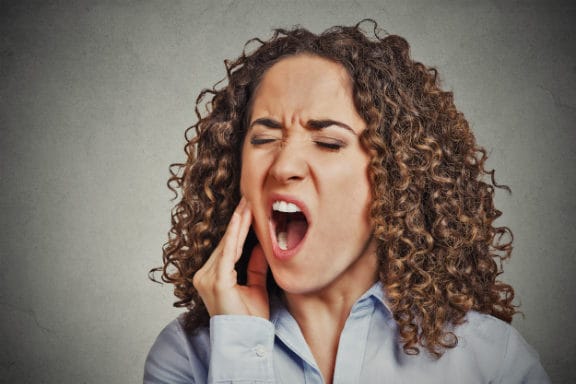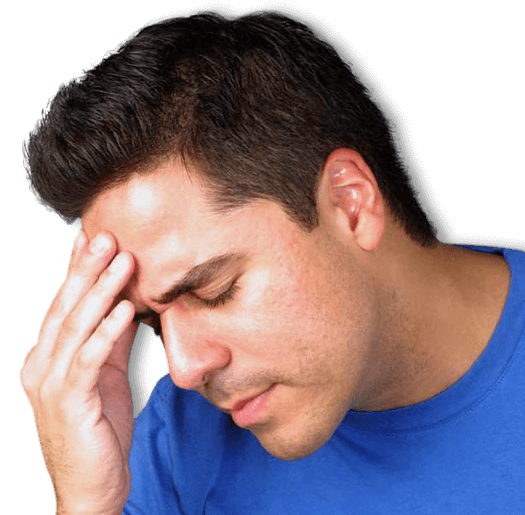Causes Of TMD
There are many causes for TMD such as:
- Unbalanced occlusion or 'Bad Bite'
- Stress (emotional or work/school related)
- Injury or trauma (this could have been an injury as obvious as a blow to the jaw with a fist or something as subtle as a whiplash injury with direct trauma to the head or jaw.)
- Teeth grinding or Bruxism
A 'Bad Bite' could be caused by any of the following:
- Missing teeth
- Crowded or 'crooked' teeth
- Worn down teeth
- Old crowns and bridges
- Unbalanced dentures
When teeth are missing, or out of alignment, it causes the jaw to shift positions and the muscles to work harder to chew, swallow, bite, etc. and eventually will cause: muscle spasms, tension and pain.
Muscle tension and misplaced TMJ could cause the TMJ disc to be pulled out of place which will result in pain, clicking and popping in the TMJ.
If the disc is displaced for a long time, the bones will start rubbing against each other and some damage will happen to the bone, this is called Osteoarthritis.
If there is inflammation in other joints or bones of the body, it is called Osteoarthritis (Arthritis) which may involve the jaw bone and the TMJ. Some damage to the bone may be evident on the x-rays.

TMD Symptoms
To help diagnose a TMJ disorder, you want to look for the following symptoms that are generally related to TMD.
- Jaw Pain
- Jaw Clicking
- Limited Mouth Opening
- Jaw Locking
- Face Pain
- Eye Pain
- Ear Pain
If you are experiencing any of these symptoms, please call our office at 415.731.9300 and we'll be happy to discuss them further and talk possible treatments that are available and would work best for you.

Headaches
If you suffer from frequent head or facial pain, an incorrect bite may be the cause due to constant cranial muscle strain. Headaches from dental stress are a type of muscle tension headache. A tension headache may be on one or both sides of your head and feels like a dull, non-throbbing ache that can usually be relieved by aspirin.
When you swallow, your upper and lower jaw muscles must hold your jaw firmly against the skull. Between swallowing over 2,000 times a day and a poorly aligned bite, the jaw muscles can overwork causing muscle strain which in turn leads to a headache. People who suffer from migraine pain and chronic headaches clench their jaws in a balanced, centered position. This causes extremely intense muscular contraction, but little strain on the jaw. Nighttime jaw clenching usually goes unnoticed but it sets the stage for migraine pain and chronic headache pain.
